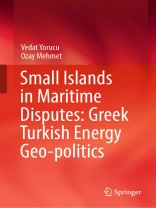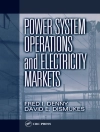This book explores the delicate interconnections between law and economics, especially as regards island entitlements under international maritime law. This is an area in the literature generally overlooked because maritime law has been the domain of legal experts. Maritime boundary disputes are over resources, a vitally important economic subject. Yet, the economics of maritime law has been ignored. Lawyers and legal experts have dominated the field, to the alarming degree of causing needless international conflicts. Our monograph addresses this serious neglect. The methodology would be rational behavior model, one specifically formulated to make the case that dialog and negotiation between these countries is the rational choice leading to win-win outcome in the Aegean and Eastern Mediterranean territorial waters. Public and private sector actors identified as key decision-makers in all phases of hydrocarbon development and monetization, within an overall win-win framework.
Innehållsförteckning
Introduction: Economics of Sovereignty & Small Islands.- The Aegean Conundrum: Hierarchy, Precedence and Procedure in Maritime Law.- The Cyprus Conflict: Updating the 1960 Accords.- International Evidence in Maritime Dispute Settlement: Problems with UNCLOS.- Can the EU be an Honest Broker?.- The TANAP-TAP Case.- Wider Energy Cooperation: Greece-Turkey-Cyprus.- Financing & Monetization.- Energy Hubs.- Conclusion.
Om författaren
Prof. Yorucu was born in 1970 in Nicosia. He earned his Ph.D. in Economics from the University of Leicester in 1998. He started teaching at the Eastern Mediterranean University, Cyprus as Assistant Professor of Economics in 1998. He became an Associate Professor in Development and International Economics in 2009. He received his Associate Professor title from the Higher Education Council of Turkey. He became full Professor in 2015. In addition to his academic career, he served for five years as Chief Economic Advisor to the Minister of Economy and Finance in Nicosia. He served as a Visiting scholar at the College of Europe-Brugge Campus (Belgium) during 2013-2017 summer and at Norman Paterson School of International Affairs-Carleton University, Ottawa during 2018 summer . He has published more than 30 scholarly articles in leading international refereed journals in the field of economic development, construction economics, energy policy, energy economics and applied econometrics. He is the co-author of books published by Springer Publishing Inc: “Southern Energy Corridor: The Role of Turkey in European Energy Security (2018)” and “Modern Geopolitics of Eastern Mediterranean Hydrocarbons in an Age of Energy Transformation (2020). He has been the Vice Chair of Cyprus Turkish Economic Association since 2012. Besides academic position at EMU, he is serving as the Chief Economic Advisor to the President and Prime Minister of Northern Cyprus. Ozay is a retired Canadian academic of Turkish Cypriot origin, the first from Turkish Cyprus to study at the London School of Economics. He did his doctorate in Economics at the University of Toronto. In 2004, after 35 years of teaching, he retired as Professor Emeritus of International Affairs, Norman Paterson School of International Affairs (NPSIA), Carleton University, Ottawa, Canada. He has been awarded the University’s highest academic honor by being named Distinguished Research Professor for his teachingand research. Since retirement he has been involved in creating a Centre in Modern Turkish Studies in NPSIA. He is the Lead Academic of the Centre which is funded by donations from the Canadian Turkish community and others interested in Turkish affairs in Canada and the world. Over the years, Özay has specialized in Economic Development and International Economics with special reference to Southeast Asian economies such as Malaysia, Singapore, Indonesia and the Asian Tigers. He has published extensively with over 25 scholarly books and more than 100 articles in top academic journals. Most recently he has written on Cyprus, Turkey and the Middle East. He consulted for several international agencies including the World Bank, UN, ILO, WHO, Asian Development Bank, and several Canadian, British and USA aid organizations. He has also written historical novels. He lives in Ottawa with wife Karen Ann Mehmet. They have three sons and five grandchildren.












